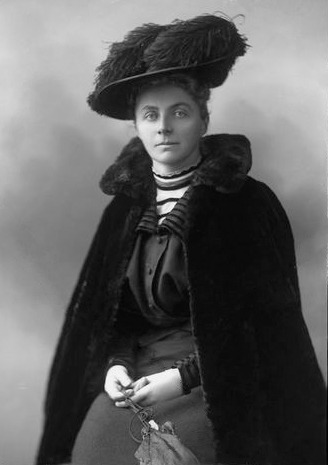
Not many realise that it was the British who invented the concentration camp system. Emily Hobhouse, referred to by the British Establishment as 'that bloody woman' did and set out to do something about the evil. Regarded as a traitor by the British, she is honoured in South Africa.
Emily Hobhouse was born in St Ive near Liskeard, Cornwall on 9th April 1860, the daughter of Reginald Hobhouse and Caroline Trelawny. She was the sister of Leonard Hobhouse 1864-1929, the social philosopher and both were active members of the Adult Suffrage Society. She was educated at home and lived with her parents until she was 35. In 1895 she travelled to Minnesota to work amongst Cornish miners and their families who had migrated to America and fallen on hard times
Like many liberals, she was opposed to the Boer War and she denounced the government's actions in going to war.
Towards the end of 1900 she received information on how women and children were being treated by the British Army. She wrote "poor women who were being driven from pillar to post, needed protection and organized assistance. And from that moment I was determined to go to South Africa in order to render assistance to them". In October 1900, she formed the Relief Fund for South African Women and Children. The aim of the organisation was to "To feed, clothe, harbour and save women and children - Boer, British and other - who were left destitute and ragged as a result of the destruction of property, the eviction of families or other incidents resulting from the military operations". She struggled to raise funds for her new organisation.